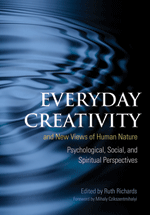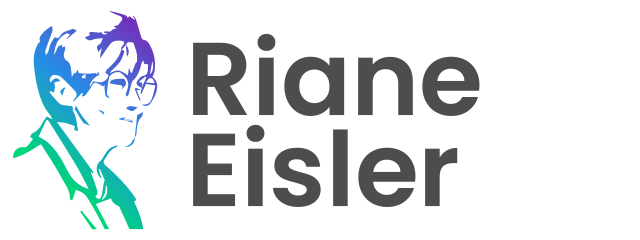Intervista a Riane Eisler, che propone un nuovo modo di intendere la società e l’economia.
PDFs
The American Family: Building a Foundation for Real Democracy and Freedom
Our Great Creative Challenge: Rethinking Human Nature—and Recreating Society
By Riane Eisler (2007) for R. Richards (Ed.), Everyday creativity and new views of human nature: Psychological, social, and spiritual perspectives (pp. 261–285). American Psychological Association.
Our most urgent creative challenge is building a sustainable future. Not a Utopia, not a perfect world. But a world where peace is more than just an interval between wars, where dire poverty, brutal oppression, insensitivity, cruelty, and despair are no longer “just the way things are.”

For millennia, we humans have imagined a world of peace, beauty, and love. Sometimes we have imagined this world in an afterlife. But more and more in the last centuries we have imagined it here on Earth. Now, with terrorism, weapons proliferation, escalating wars and poverty, and human rights abuses, there is a new urgency to realizing our common wish for a sane, humane world.
All over the world, millions of people and thousands of grassroots organizations are using their creativity to help build cultures that are more equitable, sustainable, and peaceful. At the same time, the majority of people still doubt we are capable of leaving behind habits of cruelty, oppression, and violence.
Stories of an innately flawed humanity doomed by its “original sin” or by “evolutionary imperatives” persist. These narratives are obstacles to 261 creating a better world, as we humans do not work for change that we think is impossible, change that goes against “human nature.” Clearly cruelty and insensitivity are human possibilities. But, as we see all around us, by the grace of evolution we also have enormous capacities for caring and consciousness.
These capacities are integral to human nature—as is our enormous capacity for innovative, creative thought and action. Our enormous capacities for caring, consciousness, and creativity are our most distinctive human traits. And our most important creations are our cultures.
It is our cultural rather than natural environments that today most decisively affect what aspects of our large biological repertoire—our capacities for destructiveness, cruelty, and violence or for creativity, caring, and peace—will be inhibited or expressed. The cultures we create will largely determine whether we continue to kill one another and destroy nature’s life-support systems, or build a humane and sustainable world.
Leading Towards Change of Ethics and Caring: Resisting Temptation and Reaping the Benefits
By Riane Eisler, Simon L. Dolan & Mario Raich, for the European Business Review, Nov 2013
Businesses stand at a crossroads, and our current systems are not sustainable given the present economic and environmental crises. In this article, Riane Eisler, Simon L. Dolan and Mario Raich suggest that profitability and caring business decisions can support each other .
Below, the authors argue that businesses that care for all stakeholders can be even more successful than those that do not, and describe ways that business leaders can develop more responsible policies and practices.
Leveraging the Corporate Ecosystem and The New Innovative Role for HRM
By Riane Eisler for Effective Executive 2010
This article discusses the possibilities and opportunities that exist for further exploring the corporate ecosystem. It is based on a new work that is currently in progress. It elaborates on the need to innovate in management and more specifically in people management. It is a call for HR managers to be proactive in assuming new roles connected to the leveraging of the corporate ecosystem. It is argued that by doing so, they will add value to corporate sustainability as well as to their own HR sustainability.
